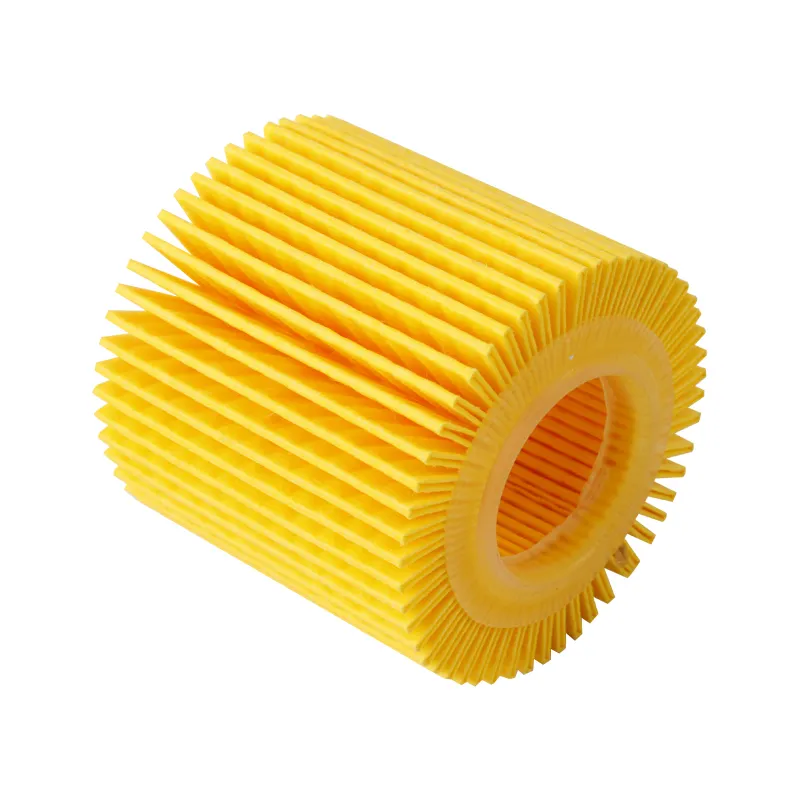Out . 12, 2024 06:18 Back to list
Understanding and Choosing the Right Fuel Oil Filter for Your Needs
Understanding Fuel Oil Filters A Key Component in Engine Performance
Fuel oil filters are critical components in any engine system, whether it’s for automobiles, boats, or industrial machinery. They play a significant role in ensuring that the fuel being delivered to an engine is clean and free from contaminants. By filtering out impurities, fuel oil filters help to maintain engine performance, increase fuel efficiency, and extend the lifespan of engine components. In this article, we will explore the importance of fuel oil filters, how they work, and some best practices for maintenance.
The Purpose of Fuel Oil Filters
The primary purpose of a fuel oil filter is to remove dirt, debris, and other impurities from fuel before it enters the engine. Contaminated fuel can cause a range of issues, including poor engine performance, decreased fuel efficiency, and even catastrophic engine failure. Particles such as rust, dirt, and water can accumulate in fuel tanks over time; when these particles are drawn into the engine, they can cause wear and tear on fuel injectors, pumps, and other critical components.
How Fuel Oil Filters Work
Fuel oil filters come in various designs, but they all serve the same basic function. Typically, the filter consists of a filtering medium—such as paper, synthetic fabric, or metal mesh—designed to capture and hold impurities while allowing clean fuel to pass through.
In most fuel systems, the filter is positioned between the fuel tank and the engine. When the engine is running, the fuel pump sends fuel through the filter for cleaning. The filter traps debris and contaminants, allowing only clean fuel to flow to the engine.
There are two main types of fuel oil filters inline filters and canister filters. Inline filters are installed directly in the fuel line and are generally easy to replace, while canister filters are larger and often have built-in features like water separation. Some filters also incorporate a heating element to reduce the viscosity of fuel, which is especially useful in colder climates.
Signs of a Clogged Fuel Oil Filter
A clogged fuel oil filter can severely impact engine performance. Symptoms that indicate a clogged or dirty filter include
fuel oil filter

1. Reduced Engine Power If the engine does not receive adequate fuel supply, it may hesitate or struggle to accelerate. 2. Decreased Fuel Efficiency A clogged filter can cause the engine to work harder, leading to increased fuel consumption. 3. Engine Misfires An insufficient fuel supply can lead to irregular combustion, resulting in engine misfires. 4. Difficulty Starting the Engine If the filter is too clogged, fuel may not reach the engine at all, making it challenging to start.
Regular inspection and replacement of fuel oil filters are essential to avoid these issues and maintain optimal engine performance.
Best Practices for Fuel Oil Filter Maintenance
1. Regular Replacement Fuel oil filters should be replaced as per the manufacturer's recommendations, which can typically be found in the owner's manual. Many vehicle manufacturers suggest changing the filter every 10,000 to 15,000 miles.
2. Use Quality Filters Always opt for high-quality fuel oil filters that meet or exceed OEM specifications. Cheap filters may not provide adequate filtration and can lead to further engine problems.
3. Monitor Fuel Quality Always purchase fuel from reputable stations to minimize the risk of contamination. If you suspect your fuel may be contaminated (e.g., if the fuel smells foul or appears cloudy), you may need to clean your fuel system more thoroughly.
4. Check for Water Contamination Water in fuel can cause serious engine damage. If you notice water separation in the filter, it’s essential to address the issue immediately.
Conclusion
Fuel oil filters are an often-overlooked but essential component of engine maintenance. By ensuring that engines receive clean fuel, these filters help maintain performance, improve efficiency, and prolong the life of engine components. Regular checks and maintenance of your fuel oil filter can save you time and money in the long run, preventing costly repairs and keeping your engine running smoothly. As with all aspects of vehicle care, a little preventive maintenance goes a long way in ensuring that your engine remains in optimal condition for years to come.
-
Toyota Corolla Oil Filter Price & Deals Affordable AC & Air Filters
NewsJun.10,2025
-
Car Air Filter Change How Often & Why Engine & Cabin Filter Guide
NewsJun.10,2025
-
Best 1 Inch Air Filters for Home & Office High Efficiency 1/2 & 2 Inch AC Filter Options
NewsJun.10,2025
-
Whole Home & House Air Filtration Supplier Expert Air Purification Solutions
NewsJun.10,2025
-
Affordable Diesel Engine Filter Price - Best Deals on Quality Parts
NewsJun.10,2025
-
Premium 20x25x5 Air Filter High-Efficiency Dust Removal
NewsJun.09,2025


